![]()
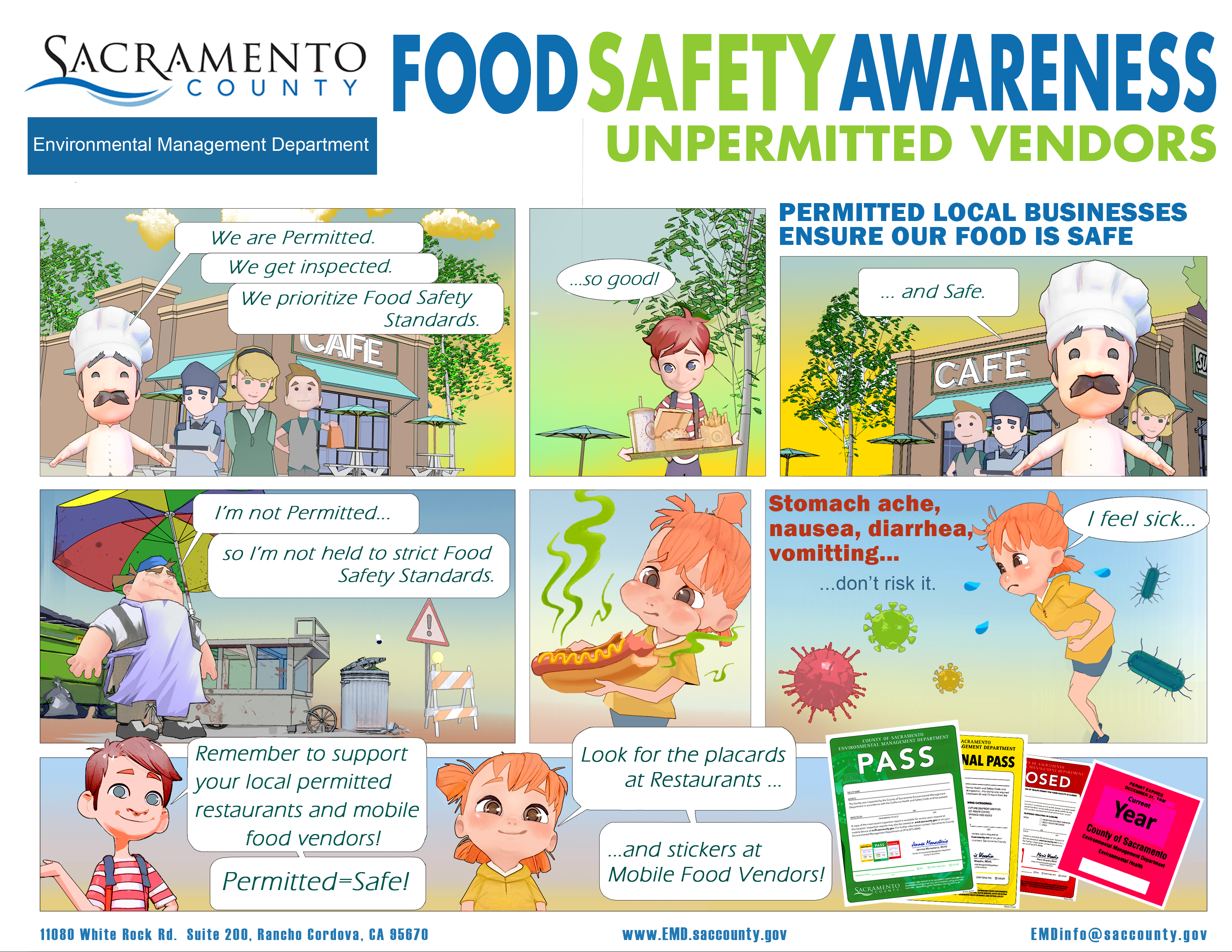
![]()
![]() Note: To print graphic to proper scale for 8/12 x 11, in print options, reduce scale by 50%
Note: To print graphic to proper scale for 8/12 x 11, in print options, reduce scale by 50%
English version: UPV English Spanish version: UPV Spanish
What is an Unpermitted Vendor
Unpermitted food vendors are those vendors that do not obtain a permit from Environmental Health Division and operate openly or covertly in a manner that compromises food safety. These operations are usually found outdoors, in vacant lots, on street corners or roaming door to door through neighborhoods. Sometimes the vending takes place on an outdoor table, open food preparation cart, shopping carts, ice chests, or out of the trunk of a vehicle. The following health concerns are commonly associated with:
- Food from unapproved sources
- Food stored directly on the ground
- Little or no protection from contaminants
- No restrooms
- No refrigeration
- Vermin and insects
- No potable water
- No handwashing stations
- No food safety training for employees
There is an elevated risk for illness to be transmitted through food sold in this manner. The vendors do not have access to restrooms and resume their food preparation activities without washing their hands. Garbage, debris and discarded food are allowed to accumulate on the ground adding to the sanitation problems generated by this activity.
Many customers view the roadside food vendors as a convenient food purchase. They often do not understand the risks associated with eating food prepared by unpermitted vendors. Some may assume that the vendors actually are licensed and inspected by the Environmental Health Division.
It is our hope that the public will gain a clearer view of the dangers associated with unpermitted vending operation as well as understand what key components to look for to make sure the food they are buying is from a safe, permitted source that is routinely inspected by the Environmental Health Division.
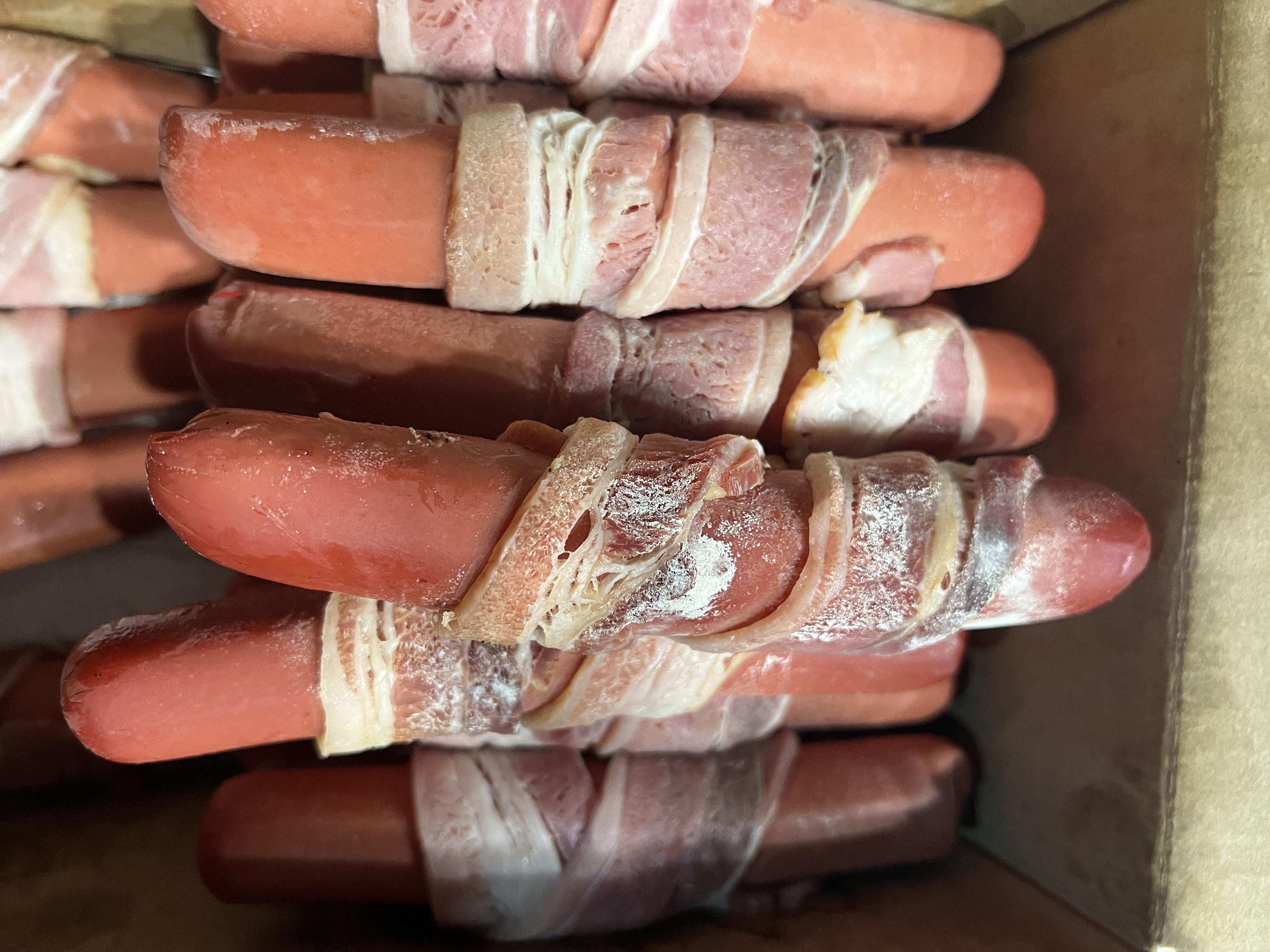
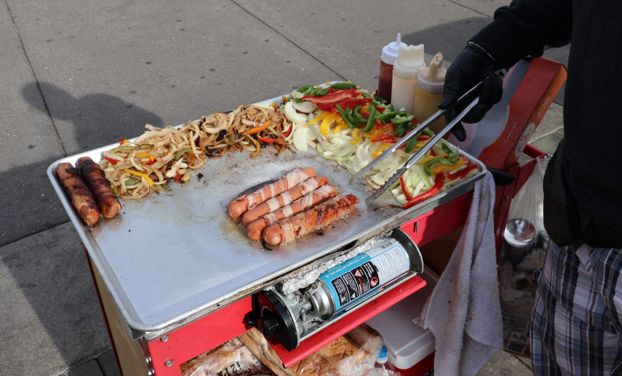
Unpermitted hot dog cart vendor
Moldy hot dogs
What to Look For
Environmental Health urges everyone to look for the placard or sticker before buying food from vendors. The placard and sticker indicates the vendor has been inspected and is aware of proper food and safety practices.
Placard
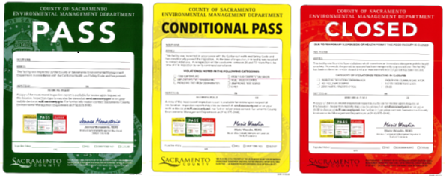 Sticker
Sticker 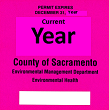
If you see an unpermitted vendor in the same location more than once, call 311 to report it. It is important to include the time of day and specific address for the locations where the vendor can be found.
Be Safe - Protect Your Families' Health
Environmental Health works hard to protect the public from unseen dangers associated with improper food handling and cross contamination. Preventing foodborne illness is our main objective. But we can't do it alone! We want to increase public awareness about the dangers of purchasing and consuming food sold from unpermitted vendors.
Look for a Sacramento County placard or sticker. If in doubt, keep walking. It is not worth the risk!
For more information :UPV Information Flyer 2024 (English), UPV Information Flyer 2024 (Spanish)
Unpermitted food vendors are people who are selling/pedaling food on a cart, table, back of the car trunk, or from
their home without a permit to operate from the Environmental Health Division.
The California Retail Food Code Section 114387 requires that all individuals who provide food to the public obtain a
permit to operate.
- Food from unapproved source
- Food stored directly on the ground
- No restrooms
- No refrigeration to keep food cold
- Vermin and insects
- No potable water
- No handwashing on-site
- No food safety training for people handling the food
- Poor personal hygiene
- Unsafe cooking equipment
- Outside of stadiums after a sporting event, concert, or show
- From unpermitted homes, garages, or backyards
- On street corners, parking lots or vacant lots with tables, tents and cooking equipment
- Roaming door to door through the neighborhood
- From the trunk of a vehicle
All sidewalk vendors that sell perishable food must have a Health Permit before lawfully and safely beginning their vending.
- Provide hand washing facilities and supplies.
- Use approved heating units.
- Keep foods hot, at or above 135°F.
- Use approved refrigeration.
- Keep foods cold, at or below 41°F.
- Provide sneeze guard barriers to protect food from contamination.
- Provide overhead protection.
- Buy all food from approved sources.
Food Safety Training and How to Get a Green Placard Training Video.
Perishable foods are those foods that require temperature control to limit the growth of disease causing bacteria.
Disease causing bacteria can cause foodborne illness.
Examples of perishable foods: eggs, dairy, fish, poultry, meat, cooked grains, cooked vegetables, and cut melons.
Maintaining foods at the proper temperature prevents the rapid growth of bacteria that can make you sick.
Hand washing is important to prevent the spread of illness.
The improper handling of all foods can lead to symptoms like: diarrhea, vomiting and stomach cramps. Severe cases of foodborne illness can lead to hospitalization or even death.
A Sacramento County Placard or sticker is visible on the food cart, food truck or trailer.

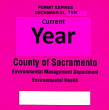
Report a Problem
To report unpermitted street food,
contact 311. It is helpful to be able to report details about the problem, such as exact location of the food sales, day and times of operation, a description of the vendor (on a cart, truck, trailer, from a trunk, under a tent), and type of food sold.
Email:
EMDinfo@Saccounty.gov
